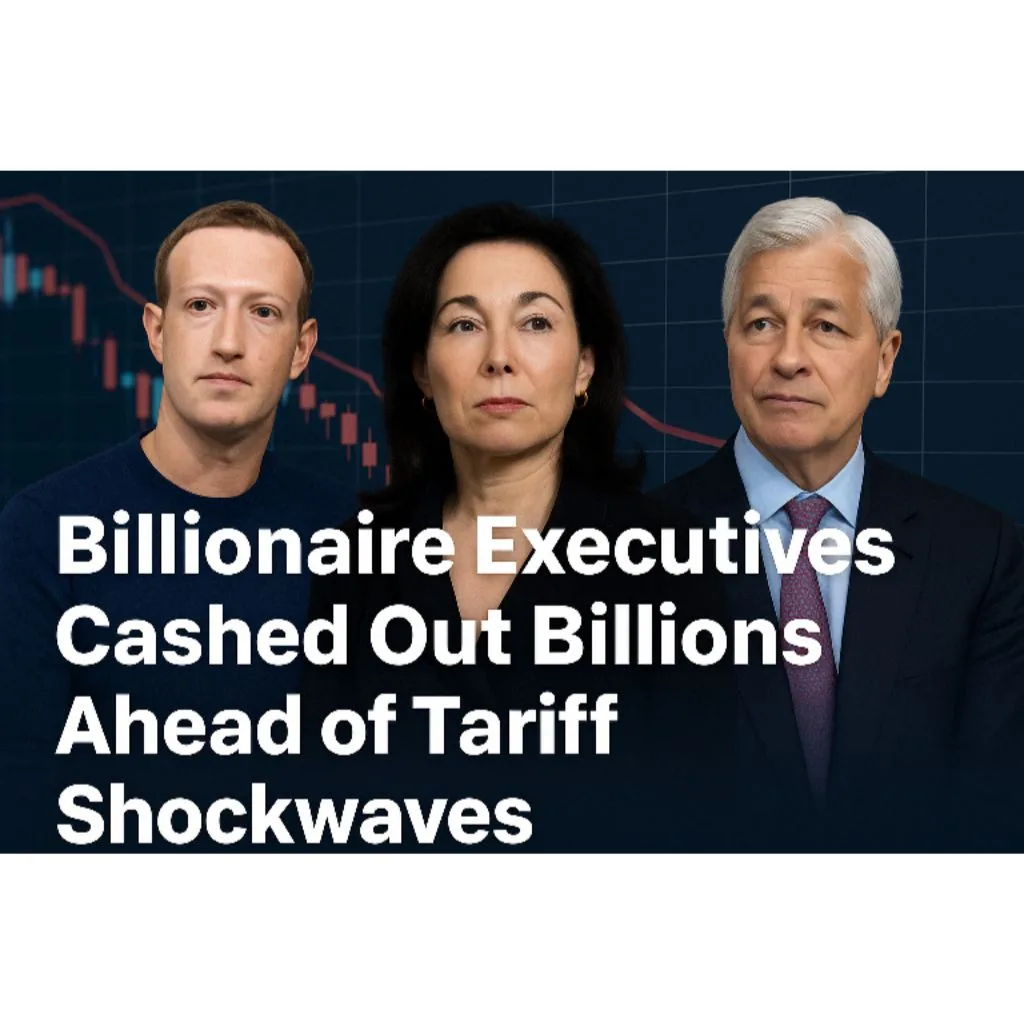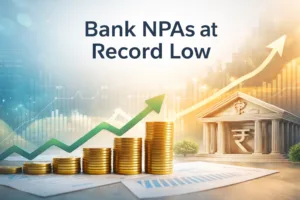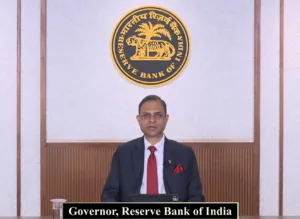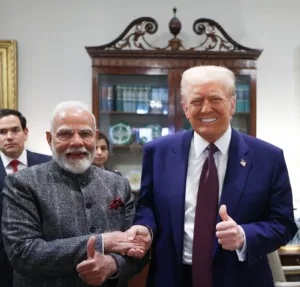In early 2025, just before President Donald Trump’s new tariff announcements triggered a major selloff in global stock markets, several top business leaders quietly sold large amounts of their company shares. Executives from Meta (Facebook), Oracle, JPMorgan, and other major firms offloaded billions of dollars worth of stock while prices were still high. These sales were done legally through scheduled trading plans but happened just before markets dropped sharply, making the timing very notable.
Let’s take a closer look at who sold, how much, and why this matters.
What Is Insider Selling?
Insider selling happens when top company leaders—like CEOs, board members, or major shareholders—sell shares of their own company. This is legal when done using a pre-approved method, such as a 10b5-1 trading plan. These plans let insiders sell shares at regular times, even if they know internal information.
However, when many insiders sell before major bad news hits the market, it often makes investors cautious. It can be a signal that top executives expect trouble ahead.
Biggest Insider Sellers of Early 2025
Mark Zuckerberg, the CEO of Meta (formerly Facebook), sold around 1.1 million shares worth $733 million during January and February 2025. The sales were made under a 10b5-1 plan through his charity foundation, the Chan Zuckerberg Initiative. At that time, Meta stock was trading over $600 and reached its highest point—$736—on Feburary 14th. After the tariff news and market drop, Meta shares fell by 32%. Zuckerberg’s net worth also dropped significantly, from $259 billion to $178 billion.
Safra Catz, the CEO of Oracle, also sold big. She exercised and sold 3.8 million shares, earning around $705 million. Oracle stock later fell more than 30%. Despite that, Catz now has a net worth of $2.4 billion.
Jamie Dimon, the CEO of JPMorgan Chase, sold shares worth $234 million on February 20, just after the bank’s stock hit its 2025 high. It was his first major sale in a year. In April, he sold another $31.5 million worth of shares, taking his total insider sales this year to over a quarter-billion dollars.
Other major sellers included:
Nikesh Arora, CEO of Palo Alto Networks, who sold shares worth $432 million early in 2025. His total for the year is now over $565 million, with all sales done under a monthly 10b5-1 plan.
Max de Groen, a director at Nutanix and Bain Capital partner, sold 5.5 million shares worth $410 million. Bain had converted a note last summer and received a large stake, which it began to reduce in March.
Chuck Davis, a director at Axis Capital and co-CEO of Stone Point Capital, sold around $400 million worth of shares through investment vehicles.
Stephen Cohen, President of Palantir, sold over $337 million in shares during a period when the company’s stock surged on defense-related optimism. His net worth is currently estimated at $3.3 billion.
Eric Lefkofsky, CEO of Tempus AI and co-founder of Groupon, sold shares worth $231 million. Some of his sales were to cover IPO expenses.
Ted Sarandos, Netflix co-CEO, sold shares worth $195 million in January, under a trading plan created in October.
Travis Boersma, co-founder of Dutch Bros, sold 2.5 million shares worth nearly $190 million through trusts he controls.
Insider Selling Compared to Last Year
In total, about 3,867 insiders sold $15.5 billion worth of shares in Q1 2025. This is much lower than Q1 2024, when 4,702 insiders sold $28.1 billion. In 2024, Amazon founder Jeff Bezos alone sold over $8.5 billion in stock, making up a large portion of the total.
In 2025, the insider sales were more evenly spread across top companies. At least 10 insiders each sold over $100 million in stock.
Why It Matters for Investors
The timing of these insider sales is important. These sales happened just before Trump’s tariff plans were made public. The market reacted badly, especially in the tech sector, where valuations dropped sharply. Elon Musk’s net worth alone fell by $129 billion during the same period.
Although insider selling is not always a bad sign, when many top executives sell at once before a downturn, it can signal a loss of confidence or an effort to secure profits ahead of trouble.
Some insiders are now using the drop in prices to buy shares again, hoping to profit in the long run. But for regular investors, these sales are a reminder to always stay alert to what the top executives are doing—especially during uncertain times.

BBW News Desk is the editorial team of BigBreakingWire, a digital newsroom focused on global finance, markets, geopolitics, trade policy, and macroeconomic developments.
Our editors monitor government decisions, central bank actions, international trade movements, corporate activity, and economic indicators to deliver fast, fact-based reporting for investors, professionals, and informed readers.
The BBW News Desk operates under the editorial standards of BigBreakingWire, prioritizing accuracy, verified information, and timely updates on major global developments.

















Be First to Comment